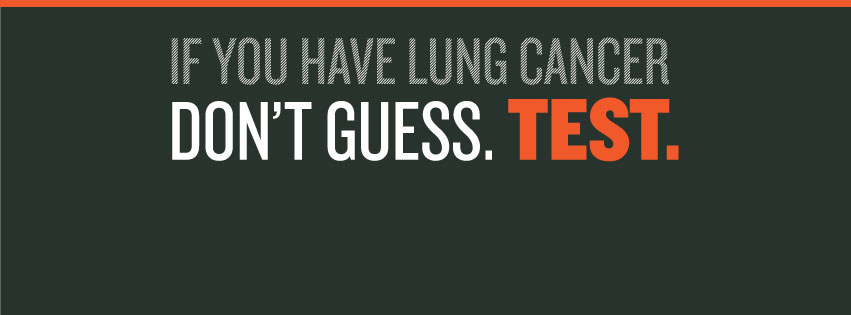Campaign promotes alternative cancer diagnosis method
Every hour, 25 people are diagnosed with lung cancer. Because lung cancer is different for every patient, the “Don’t Guess. Test.” Campaign advocates for comprehensive genomic tests that can reveal the genomic makeup of the lung cancer and generate personalized treatments. In November, Lung Cancer Awareness month, this campaign was launched by the Bonnie J. Addario Lung Cancer Foundation (ALCF) and Foundation Medicine.
According to Summer Johnson from Washington Media Group, which helped promote the campaign, Cleveland is one of the five areas that the “Don’t Guess. Test.” Campaign is targeting, because of Ohio’s higher than average rate of lung cancer.
“There are different ways to do genomic profiling,” Vamsidhar Velcheti, assistant professor at the Cleveland Clinic’s Taussig Cancer Institute, said. “The problem and the challenge of lung cancer is that oftentimes we have really limited diagnostic tissue at the time of diagnosis.”
This is why he considers comprehensive genomic profiling the better option.
Rebecca Cavagnari, a runner and lung cancer survivor, attested that comprehensive genomic profiling is more useful than previous methods. She first did a genomic profiling test in 2012 with the tissues from her removed left lung, but they didn’t find out the exact mutation she had. Two years later, when she had a tumor again, with the help of her friends from ALCF, she tried comprehensive genomic profiling and finally found out the cause of her cancer.
When asked if she thinks that the “Don’t Guess. Test.” Campaign could be beneficial to people diagnosed with lung cancer, Cavagnari answered: “Absolutely.”
“The more testing they do, the more they’ll know,” she said. “The testing wasn’t around when I first had my tumor, and two years later, it was. And the amount of information that had changed in that amount of time was pretty significant.”
Velcheti thinks the “Don’t Guess. Test.” Campaign is very important for the lung cancer patients. “Patients with lung cancer want to know all the treatment options available for them,” he said. “When patients are not aware [of comprehensive genomic profiling] … it’s hard for them to discuss the treatment options they have.”
According to Cavagnari, when people hear someone has lung cancer, they assume that person must be a smoker and, therefore, that the cancer is their fault, but many lung cancer patients have never smoked. She hopes to raise awareness of lung cancer as more than a “smoker’s disease”.
“It’s nobody’s fault,” she said. “Cancer’s not fair to anybody for any reason.”


